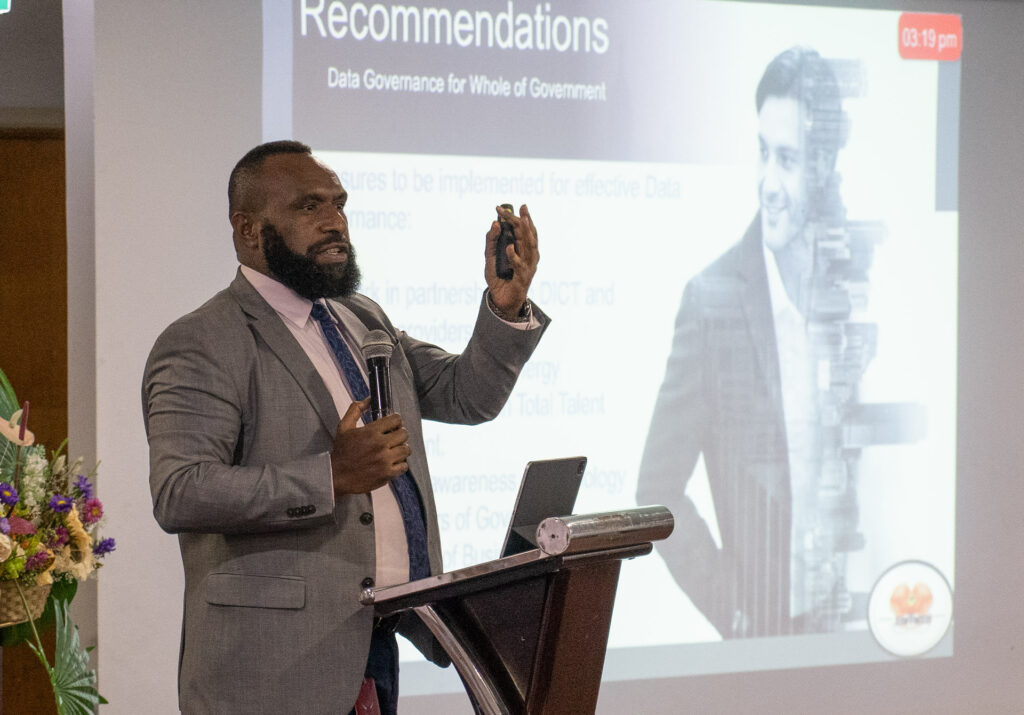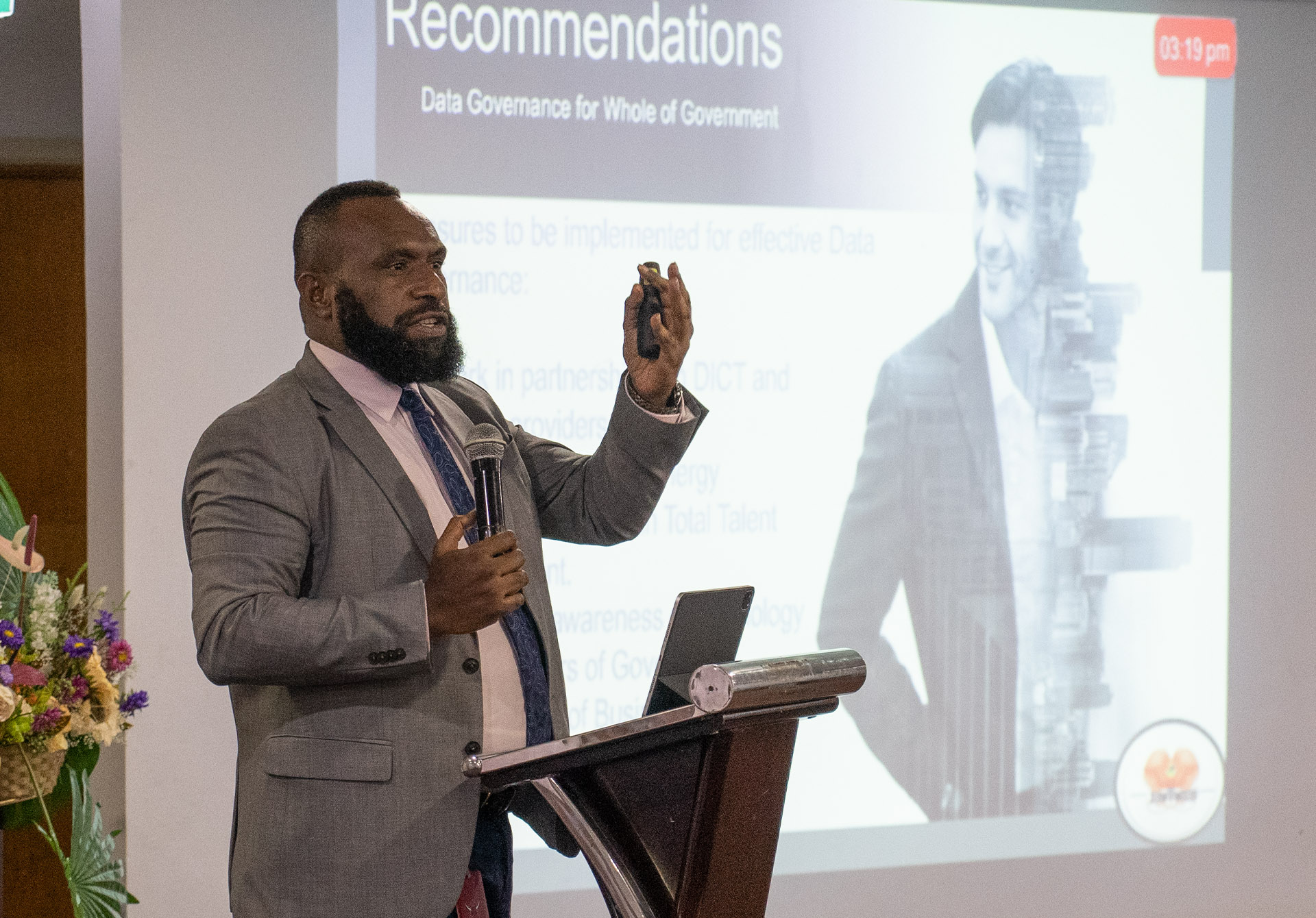Thursday 6 June, 2024

Department of Finance First Assistant Secretary, ICT Division, Edward Bero, speaking during the two-day Data Governance Workshop at Holiday Inn, Port Moresby.
First Assistant Secretary of the ICT Division at the Department of Finance, Mr. Edward Bero, applauded the Department of Information and Communications Technology (DICT) for its essential role in advancing digital transformation across the whole of government.
He made this remarks during the second day of the Data Governance workshop held at the Holiday Inn from 4 – 5 June 2024.
“DICT has done really well to lead the agenda for digital transformation for government. Nobody talked about data governance six years ago, but now it has become an issue and is affecting our work,” Mr. Bero stated.
He highlighted the transformation in the government’s approach to data, recognizing its growing importance in operational efficiency and transparency.
“It needs collaboration from each one of us from all sectors of government and the private sector to progress this.”
Mr. Bero underscored the critical dependency of the Finance Department on accurate data through two major systems: the ALESCO Payroll system and the Integrated Financial Management System (IFMS).
“Our IFMS system is now deployed to all districts in PNG. As long as we are connected, there will be transparency in what we do,” he emphasized, indicating the widespread implementation and the integral role these systems play in government operations.
He further noted the importance of data being secure, accurate, and available to improve data quality and management, along with adhering to data policies governing how data is gathered, stored, processed, and disposed of.
Mr. Bero highlighted several challenges faced by the Department of Finance in data governance, including cybersecurity issues, continuous power outages and fuel shortages, reliable data center availability, accuracy in data entry, timely submission of financial reports, and an inadequate public service remuneration structure to retain valuable human capital.
He pointed out a significant challenge: the current pay packages are not sufficient to attract and retain highly skilled technical personnel.
He urged the Department of Personnel Management (DPM) to reassess the roles within government departments to reduce duplications and ensure public servants are compensated according to their skillsets.
“In a government agency, when you employ 20 people, and only five of them are in the office, and the other 15 are out there doing their own things, the five in the office are there working and keeping the status quo.
DPM needs to really look at that and review the data to ensure that the positions and salaries of the 20 people are distributed among the five or ten people who are actually working,” Mr. Bero argued, stressing the need for a more efficient and fair distribution of workload and compensation.
The workshop, attended by key stakeholders in government, provided a platform for open discussions on strategies to enhance data governance and digital transformation.
Mr. Bero’s comments highlight ongoing efforts and the need for continuous improvement in the governance and management of data within the public sector.


